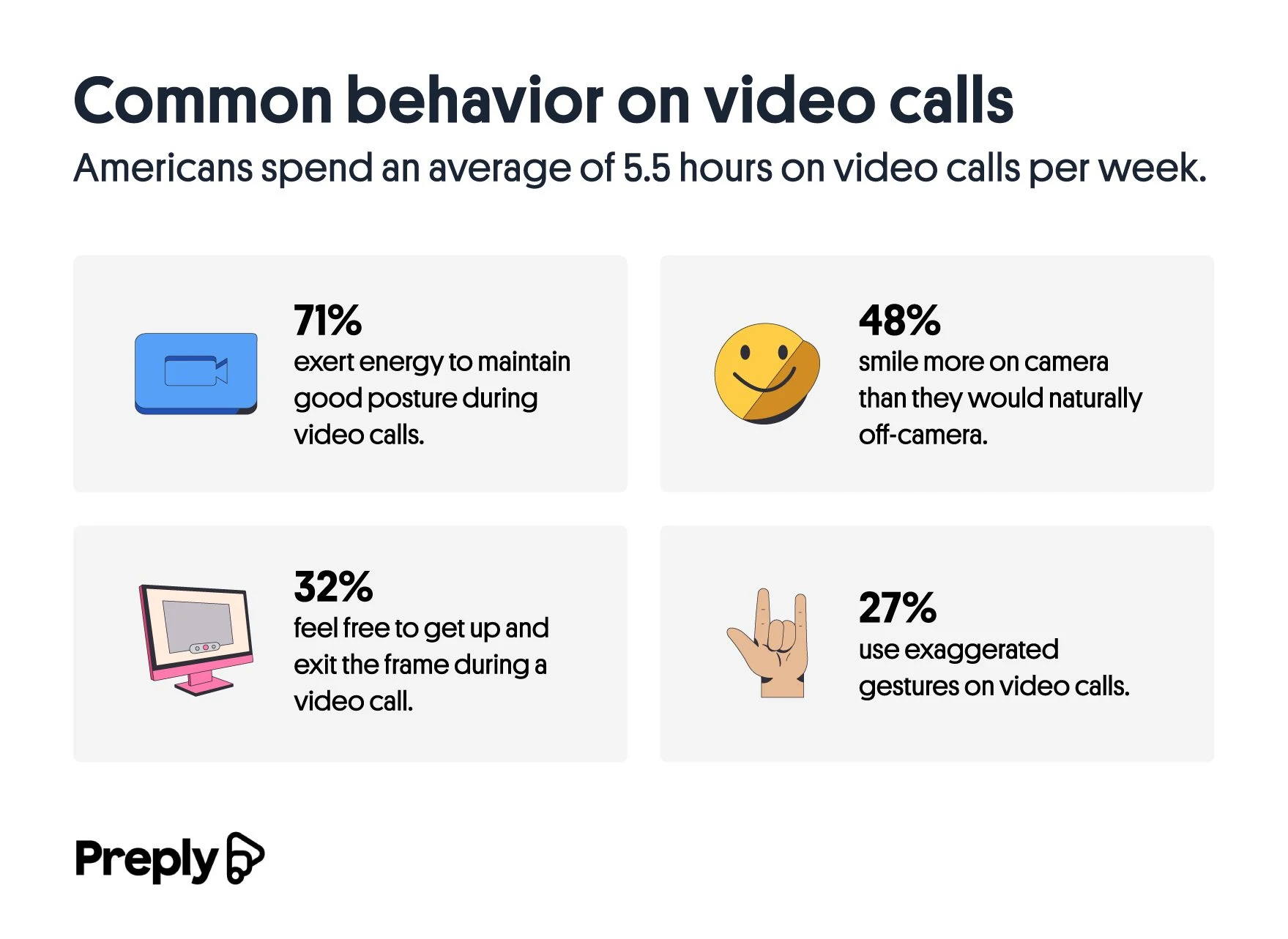Pop quiz: What do buffering video feeds, not realizing you’re on mute, and chuckling at jokes a split second too late all have in common? They're likely all contributors to a new form of workplace stress — Zoom anxiety.
As we move further into the era of the virtual workplace, many of us are grappling not just with the on-again, off-again relationship with our Wi-Fi connection, but also an unexpected flurry of anxieties unique to the digital domain. Preply, a language-learning marketplace, did a survey recently and found that as many as 94% of professionals have experienced anxiety during a work video call and 49% find virtual meetings way more fatiguing than the real deal.
So what’s behind these Zoom call jitters? Pull up a chair (virtual or real) and let’s hash out the realities of stressing out in the same workspace that lets you stay in your PJs.
Mental Health
It might seem a little strange that almost half of Americans feel more drained by Zooming than the face-to-face equivalent. After all, you’re sitting in the comfort of your own home. But 39% say they find this form of collaboration unnatural, so the medium may just prove to be more disruptive to the flow of things than meets the eye.
The 94% who’ve gotten anxious in virtual meetings offer more insight into the unique pitfalls of Zooming, too. Topping the list of stressors is what the experts call “hyper-gaze anxiety” — the unsettling feeling of many faces staring at us through the screen.
Almost half of us are also squirming under the anxiety of seeing our own “live” faces staring back at us. And let's not forget the fatigue that sets in as we constantly engage in the dance of observing others’ non-verbal cues and trying to keep up, all while feeling physically trapped in front of the screen.
Worries About Appearance
If you’ve ever turned on your camera in a Zoom meeting and suddenly noticed a wayward flyaway hair sticking out of your ‘do, you’re certainly not alone.
Even when you do keep up a picture-perfect appearance, your home office doesn’t always comply with the same professional standards — the dog barks during a presentation, or the kids make an unscheduled cameo.
Playing professional in our pajamas is a surprisingly tall order. As many as 27% of us are more occupied with our own self-image during work calls than the actual contents of the meeting. A whopping 71% struggle to maintain good posture on screen, while 48% of us smile much more than we usually would — clear signs that we’re self-consciously overcompensating to put forth a more professional image, working against a medium where we feel it never quite translates.
Productivity
We've all been there, gearing up to deliver an A-list point when — bam! — a coworker unmutes first and beats us to the punch, leaving our thoughts hanging in mid-air. Talk about a blow to the ol' confidence: 75% of us have simply thrown in the towel on what we were about to say. Let’s not even get into the epic fail of delivering a business report to perfect silence, only to realize we were on mute the whole time, a faux pas experienced by 55% of us.
And then there's the awkwardness of our collective video call etiquette: 49% of us precisely choreograph both our entrances and exits to either make an impact or fly under the radar. You'd never just saunter off in the middle of an in-person meeting, right? But in the virtual world? Well, almost a third of us feel quite at ease getting up and wandering off-screen.
In fact, some of us, 31% to be exact, just vanish without even waving or uttering a goodbye! So, while video calls might be today's communication norm, they're also an entirely new beast that we're still far from figuring out how to tame.
Final Thoughts
With how widespread Zoom anxiety is, it's high time we start some candid conversations in our virtual workplaces. From toning down the stress spurred by appearance pressures in internal calls, to encouraging an “unmute-and-go” approach, there are plenty of ways to make this great virtual leap less daunting and far more efficient.
Read next: Outdated Skills Spark Worry Among Employed Americans, Survey Reveals




